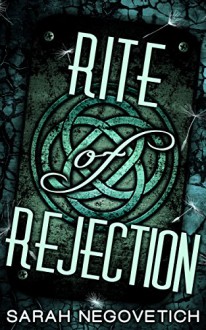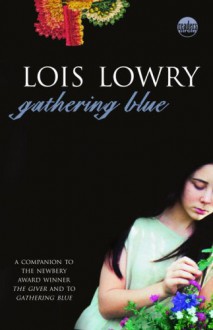
Rite of Rejection is a beautifully written YA dystopian novel, the first from Sarah Negovetich. I became thoroughly engrossed with this book from the moment I started reading it! The characters were interesting, the story premise was disturbing in its potential reality, and the action was on point.
We meet the heroine Rebecca at a crucial moment in her life, the day that she is accepted or rejected as a full-fledged member of society. It is society's coming of age ritual, one approached with glitz and glamour and pomp and circumstance. The actual day is kind of like graduation meets cotillion, yet so much more potentially life-altering than either of those events. Although all of the characters are interesting, Rebecca is the most fully developed. She is intelligent, more than a little naive, and totally out of her element for her new life. Her new life is brutal and she is far too trusting. It is fortunate for her that she falls in with the people that she does. There is a clear message there that intelligence doesn't make you infallible!
I do wish that we had gotten to know a bit more about some of the core group of characters. We learned a bit about Molly, Elizabeth, and Daniel, but I would like to have known more about Eric and how he came to really be as he was. There was also a less central character, Constance, whose part may have been small, but whose humanity showed through. There was such a bittersweet tinge to her story and it was touching.
The world that the author created was rather terrifying, in and out of the PIT, the area in which those deemed undesirable were spent for the rest of their lives. The idea of living in a society in which one's entire future is in the hands of a machine that no one outside of those in the know understand. No one really knows what it is that marks someone for rejection and the implications are scary at best. The societal norms, too, were a bit surprising. Ideas about relationships and functional families were throwbacks to a time in our own reality's past. Women were barely educated, outside of the domestic arts. They were not expected to work, but to be housewives and rear children. Men, however, were more educated and assigned jobs. The belief was that these roles made for a more perfect, more ordered society. Any deviation from these rules were likely to leave you rejected.
The PIT, too, was frightening. It was Skid Row on a more epic scale. All of society's undesirables were housed here, treated horribly. It was lawless and chaotic, every moment a trial of survival. The author was able to so vividly describe it that I cpuld practically smell the rotting garbage and feel the dirt on my skin.
I have no idea if this is a standalone or there are more in store, but I hope for the latter. The ending was satisfying, easily a cliffhanger but with enough resolution that I felt fulfilled. Great read!
Things to love...
--The world. So disturbing with its potential for reality.
--The society. Whether you liked it's values or not, it was well-created and established.
--The characters. Their stories of how they ended up in the PIT showed just how easy it was to become derailed in your life.
Things I wanted more/less of...
--Eric. I just wanted to really understand his motivations.
--The story. While the ending was good, I want to know what happened next!
My Recommendation
This is a great story about resilience, human nature, and the cost of a sseemingly utopian society.

 Log in with Facebook
Log in with Facebook 









